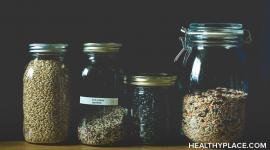References to Foods and Bipolar
Eating for Bipolar Disorder: Best and Worst Foods for Bipolar
Soh, N., Walter, G., Baur, L., & Collins, C. (2009). Nutrition, mood and behaviour: a review. Acta Neuropsychiatrica. 21:214–227.
Will the Ketogenic Diet Help Bipolar Disorder?
El-Mallakh, R. & Paskitti, M. (2001). The ketogenic diet may have mood-stabilizing properties. Medical Hypotheses. 57:6; 724-726.
Paoli A., Canato, M., Toniolo, L., Bargossi, A., Neri, M., et al. (2011). The ketogenic diet: An underappreciated therapeutic option? Clinical Therapeutics. 162:145–153.
Bipolar Diet: How Different Foods Affect Bipolar Symptoms
Davison, K., & Kaplan, B. (2012). Food intake and blood cholesterol levels of community-based adults with mood disorders. BMC psychiatry. 12:10.
Fagiolini, A., Chengappa, K., Soreca, I., & Chang, J. (2008). Bipolar disorder and the metabolic syndrome. CNS drugs. 22:655–69.
Coffee and Bipolar Disorder Don’t Mix
Plante, D. & Winkelman, J. (2008). Sleep disturbance in bipolar disorder: therapeutic implications. American Journal of Psychiatry;165 (7):830–843.
Winston, A., Hardwick, E., & Neema, J. (2005). Neuropsychiatric effects of caffeine. Advances in Psychiatric Treatment. 11(6):432–439.
Do Vitamins for Bipolar Help at All?
Nieper, H. (1973). The clinical applications of lithium orotate. A two years study. Agressologie. 14:407–411.
Young, S. (2007). Folate and depression–a neglected problem. Journal of Psychiatry and Neuroscience. 32:80–82.
Can Bipolar Disorder Symptoms Cause Loss of Appetite?
Bourre, J. (2005). Dietary omega-3 Fatty acids and psychiatry: Mood, behavior, stress, depression, dementia and aging. The Journal of Nutrition Health and Aging. 9:31–8
Bruinsma, K., & Taren, D. (2000). Dieting, essential fatty acid intake and depression. Nutrition Reviews. 58:98–108
APA Reference
Jarrold, J.
(2018, May 30). References to Foods and Bipolar, HealthyPlace. Retrieved
on 2026, January 14 from https://www.healthyplace.com/bipolar/foods-and-bipolar/references-to-foods-and-bipolar




